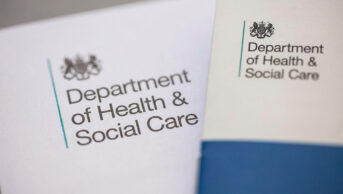
Shutterstock.com
Community Pharmacy England (CPE) has said the pharmacy sector could be put to greater use but the funding gap needs to be addressed, in its submission to the consultation shaping the government’s ten-year health plan for the NHS.
CPE’s proposals, published on 3 December 2024, have called on the government to “put community pharmacy at the centre of delivering its primary care priorities” by commissioning further services “in a way that encourages collaboration across primary care and beyond”, as well as preventing further pharmacy closures and investing in the “long-term stability of the community pharmacy sector”.
“Our submission also clearly highlights how community pharmacy is lagging behind funding uplifts given to the rest of the NHS and how pharmacy teams have long since reached their workload capacity,” it said.
“Economic stabilisation of the sector, making Pharmacy First a walk-in service, and regulatory changes to enable pharmacists to better deal with medicines shortages have therefore been identified as quick (and crucial) ways to begin to improve the situation.”
Commenting on the submission, Janet Morrison, chief executive of CPE, said: “Our overarching aim is to see increased commissioning of pharmacy services for the benefit of patients, the public and the wider NHS. But this cannot happen without first resolving the critical need for investment in community pharmacies, as well as a more supportive regulatory structure and better collaboration across the whole health service.
“It is paramount that the NHS of tomorrow capitalises on community pharmacy’s USP — easily accessible healthcare advice and treatment close to where people live, shop and work — to help meet the government’s ambition to shift the focus of healthcare towards prevention.”
In a statement published on 21 October 2024, the Department of Health and Social Care launched a consultation on what it said would be three big shifts in the way the NHS in England is provided: from “hospital to community, analogue to digital, and sickness to prevention”.
The government outlined plans to deliver new neighbourhood health centres, which would include GPs and other primary care staff operating from one site; make a single patient record available via the NHS App; and explore how smart watches could allow patients with diabetes or high blood pressure to monitor their own health from home.
CPE’s response to the consultation was informed by a combination of discussions at its Annual Conference of LPC Representatives, held in November 2024; polling of pharmacy owners; the organisation’s Vision for Community Pharmacy; and its Darzi Review submission.
The organisation also led the drafting of a joint primary care response to the ten-year plan, alongside general practice, dentistry, eye care and audiology representative organisations.
In October 2024, the Royal Pharmaceutical Society (RPS) announced plans to survey members to help shape its own response to the consultation and has also submitted a response highlighting the critical role of medicines in supporting patient care and the prevention of disease.
Tase Oputu, chair of the RPS English Pharmacy Board, said: “We’ve called for greater recognition of pharmacists’ contributions across the health service, particularly in their prescribing roles, which help improve patient care and ease pressures on other parts of the NHS.
“We emphasised the need for a more connected NHS to ensure seamless care, as well as sustained investment in the pharmacy workforce across all sectors to meet growing healthcare demands.”
The Company Chemists’ Association (CCA) submitted a response to the consultation on 2 December 2024, which said that community pharmacy was integral to accelerating the “three shifts”, such as taking on a greater role in vaccination delivery, screening, emergency hormonal contraception and smoking cessation services.
The CCA emphasised that an expanded Pharmacy First service would be central to moving more care into the community, but it stressed that the roll-out of such services and any additional workload would only be possible if there was “concrete action” to address the sector’s “funding crisis”.
Malcolm Harrison, chief executive of the CCA, commented: “Pharmacies are absolutely integral to delivering the shifts to prevention and care closer to the community. The network is ready to do even more — but the foundations need fixing.”
In January 2023, the CCA reported an annual funding shortfall of more than £67,000 per pharmacy in England in 2022/2023, compared with 2015/2016.
Analysis published in April 2024 also revealed a net loss of 1,180 pharmacies in England since 2015, 34.9% of which happened in the 20% most deprived communities.
In March 2024, The Pharmaceutical Journal also reported that more than one-fifth of community pharmacies had scaled back their opening hours since 2022.
The consultation’s submissions portal for organisational representatives closed on 2 December 2024; however, the change.nhs.uk portal remains open for individuals, such as pharmacy owners and team members, to submit their views.
The consultation on the proposals will continue to run until early 2025, with a new ten-year plan for the NHS in England due to be published in spring 2025.


